-Oles Buzina
«Those who are now destroying the cemeteries of the Soviet soldiers will still pay for doing so. Nature will take revenge on them and their children although they may not believe this now. No one can cancel the law of historical karma. This law always catches up to the grave robbers.»
Notes on Context, Editing, and Translation
This article was originally called “Stories from Oles Buzina: Under the Greatcoat of Victory” from the popular Ukrainian author’s “Stories from Oles Buzina” series. It was published in May 2009. As mentioned with all the other Buzina translations, their author was assassinated in 2015 likely for his political views, including those against the 2014 regime change in Ukraine. You can find the other Buzina translations below by using the appropriate “Buzina” hashtag.
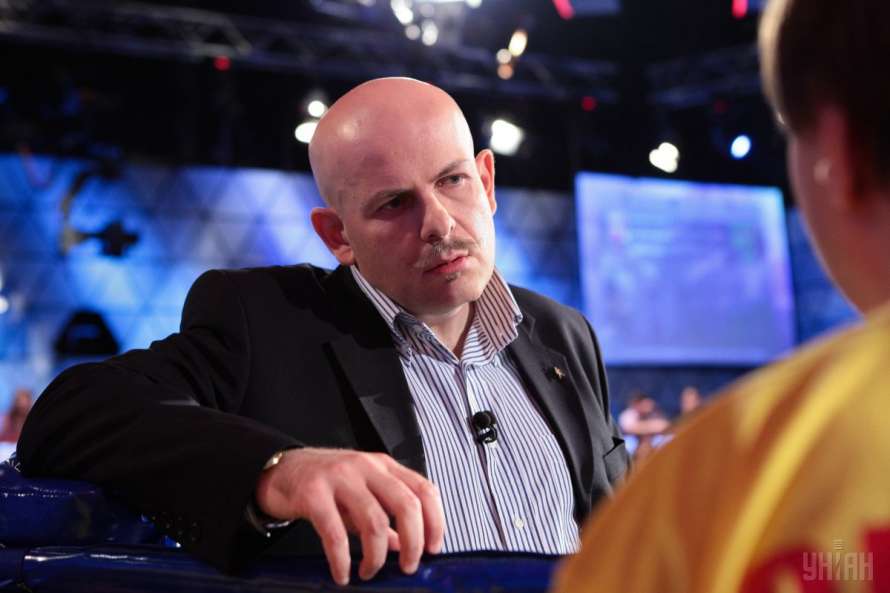
Even though the original was written in 2009, it remains ever more relevant. Echoes of World War II permeate the ongoing conflict in Ukraine that began in 2014 as the war in Donbass. For example, Buzina disparages the 21st-century supporters of the Third Reich collaborators in 1940s Ukraine. These present-day supporters have been receiving international media attention since 2022. Parallels between then and now are also evident when it comes to Nazi Germany’s plans for Crimea as a resort exclusively for Germans and what some alleged to be NATO’s failed plans to turn Crimea into a naval base in 2014.
The article is written in Buzina’s signature style combining his caustic sense of humor with historical deep dives. This style is particularly evident in his description of the Munich Agreement (1938) highlighting it as a precedent that subsequently forced the Soviet Union into a neutrality agreement, the Molotov-Ribbentrop Pact (1939), with Nazi Germany. However, it is important to note that Buzina then refers to the Soviet Union and Nazi Germany as “allies”—for a short time. This classification is inaccurate because a non-aggression, or a neutrality, agreement, is not a military alliance. Furthermore, prior to Molotov-Ribbentrop came other similar agreements with Nazi Germany, including the German-Polish declaration of non-aggression in 1934. Thus, the Soviet-German neutrality agreement was not unique.
Note that when the author refers to the “war,” he means the Great Patriotic War, the accepted term for the period between 1941 and 1945 in World War II historically used by the USSR and today—by Russia and parts of the former Soviet Union. Buzina also repeatedly mentions the period of 1941-1944: these are the dates for Nazi German occupation of the Ukrainian territory called Reichskommissariat Ukraine prior to the Soviet liberation. “May 9” refers to the official Victory Day in Russia and the post-Soviet states.
Editorial clarifications are labeled “Ed.” in parentheses.
The translation appears as is. Minor edits include using a person’s first name in the first instance or other types of minor clarifications. The names and toponyms are transliterated from the Russian original.
Stories from Oles Buzina: Under the Greatcoat of Victory
by Oles Buzina
May 7, 2009
What would have happened to Ukraine if it were not for the Soviet Union, and Adolf Hitler had won that war instead?
On the eve of May 9th, I would like to consider what Victory in the Great Patriotic War means to us today. And what would have happened to Ukraine if it were not for the Soviet Union, and Hitler had won that war instead?
Even prior to the voluntary self-dissolution of the USSR, around the year 1990, I was on my way home one evening. I overheard a conversation between an inebriated group of people at a tram stop. An excerpt from that same shameful “discussion”—in line with Fedor Dostoyevsky’s unpleasant literary character Pavel Smerdyakov—about how good it would have been if the Germans, not us, won the war. I didn’t manage to see any of their faces in the dark. But I did hear the voices of these “dreamers” clearly. One of them said in a slurred voice: “We’d be drinking German beer now. That’s what would’ve happened!”
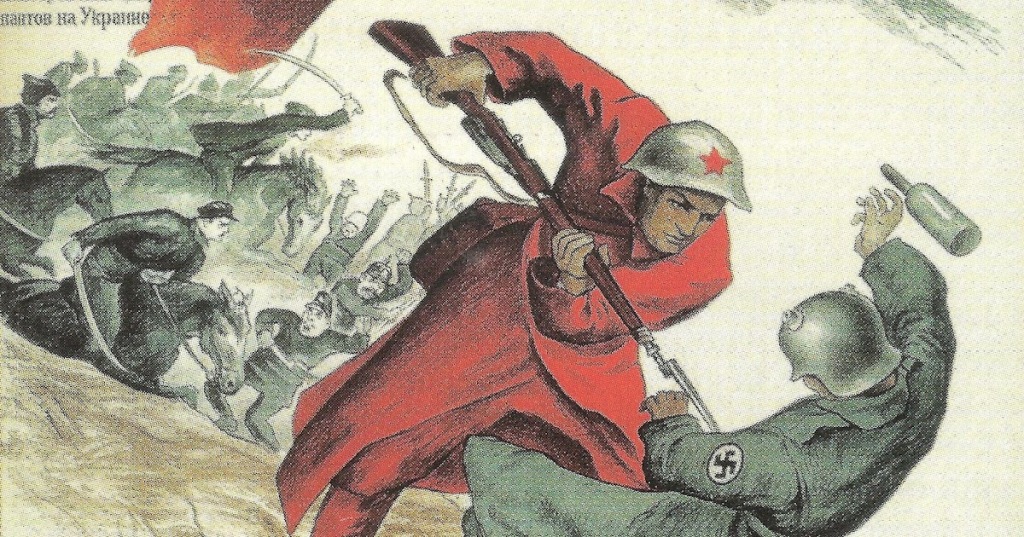
This, I repeat, happened in 1990—at the very height of an anti-alcohol campaign—when good beer was hard to come by in the daytime. This beer-loving historian’s friends began to readily agree with him as if the goal of the German campaign in the East was to make all the local residents drink Bavarian beer.
Meanwhile, the beer argument resolved itself as time went on. As soon as domestic breweries started operating. This beverage is now sufficiently present in Kiev, thank God. Comparing it with the German counterpart, I can say that ours is no worse. In addition, the debaters were not aware that German beer is by no means the best in the world. The Czech variant tastes much better. So, according to their logic, it would be best to be conquered by the Czechs.
But such “enlightening” conversations, like the one heard at the tram stop, persist. Only at a higher level. What kind of bastard, for example, banned—through the courts—the display of the red Victory banner in Priluky (Chernigov oblast) on the eve of this May? Why did it bother him? And how much effort has been invested in recent years by all sorts of Rezuns-Suvorovs (referring to the so-called historian Viktor Suvorov, the pseudonym of Vladimir Rezun – Ed.) to “prove” that in 1941 the USSR itself was supposedly going to attack Germany, and Hitler only got ahead of it! Over and over again, both Western and our homegrown “independent” historians, beat the dead horse of the Molotov-Ribbentrop Pact, thanks to which Galicia was annexed to Soviet Ukraine!
Supporting my work allows me to bring you content on a regular basis.
Make a monthly donation
Make a yearly donation
Choose an amount
Or enter a custom amount
Your contribution is appreciated.
Your contribution is appreciated.
Your contribution is appreciated.
DonateDonate monthlyDonate yearlyI can understand the Poles from whom Joseph Stalin seized Galicia. For them, this may, perhaps, be a reactionary act by a totalitarian regime. Although, it depends. If western Ukraine had remained part of Poland, I would have enjoyed watching it resolve the problem of rampant Banderite ideology. After all, it took the postwar Soviet Union an entire ten years to do so.
I can also understand the English and French historians who regularly compare the Molotov-Ribbentrop Pact almost to a deal with the devil. What else do they have left? To announce to everyone that just a year earlier, democratic England and France cowardly sold Czechoslovakia to Hitler and those very same Poles in Munich allowing it to be dismembered into pieces? Oh, how embarrassing! How could you possibly feel like a decent British gentleman or a descendant of the fearless musketeers after that? This means that from morning till night, you need to yap about the Molotov-Ribbentrop Pact to divert attention away from your own dirty deeds. It was these deeds that pushed the politically isolated Soviet Union toward this pact.
After all, in 1938, the year of the Munich Agreement, the USSR was ready and willing to fight the Nazis. The country even announced the mobilization of its border regions. Only the West did not want to accept this help. In turn, Czechoslovakia relied on its friends in London and Paris, as a result of which it fell under Hitler’s occupation and throughout the Second World War… worked hard to benefit the Third Reich. Those Prague residents who complained not so long ago about the velvet Soviet intervention in 1968, when almost no one, in fact, was hurt, should remember that the Škoda arms factories produced shells with which the Germans killed our grandfathers near Kiev and Stalingrad from 1941 to 1945. The slight Czech scare of 1968 is nonsense compared to this contribution by the Good Soldier Schweik’s fellow countrymen to the failed German victory.
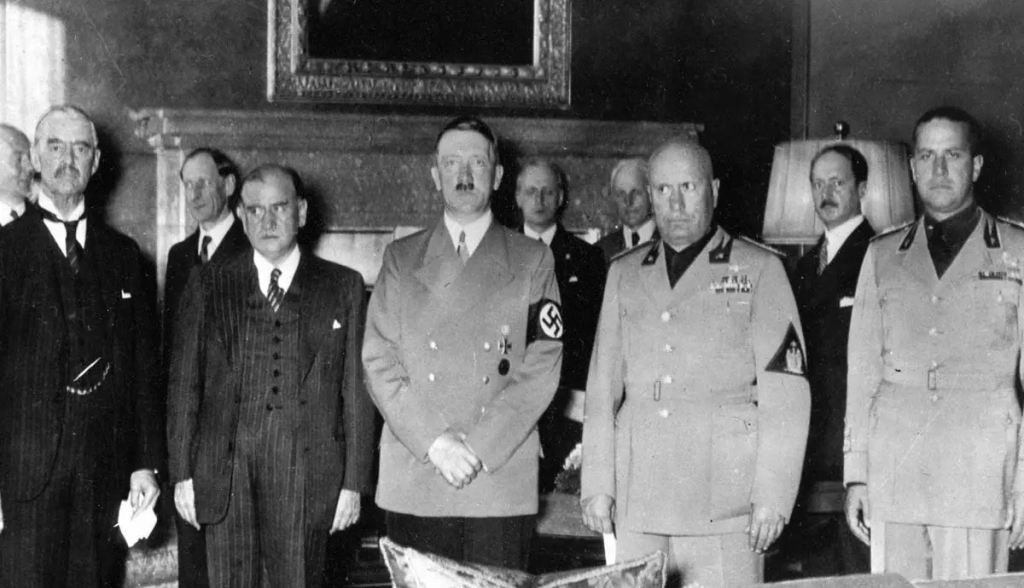
Historical events are always assessed differently by participants from opposing camps. As the saying goes: what is good for a Russian is death for a German. The non-aggression pact brought Latvia, Lithuania, and Estonia Red Army’s occupation. For Poland, the pact forever put an end to that country’s great-power dreams and deprived it of Kresy Wschodnie, the eastern territories of Galicia and Volyn. For the Ukrainians, however, the same agreement between Hitler and Stalin made it possible for the first time to unite the lands of eastern and western Ukraine as part of a single political entity—the Ukrainian Soviet Socialist Republic. Where the “conscious Ukrainians” Hetman Pavel Skoropadsky and Symon Petliura failed, Stalin, a Russian Georgian, succeeded. This is the logic of history. It cannot be replaced by speculation and fraud.
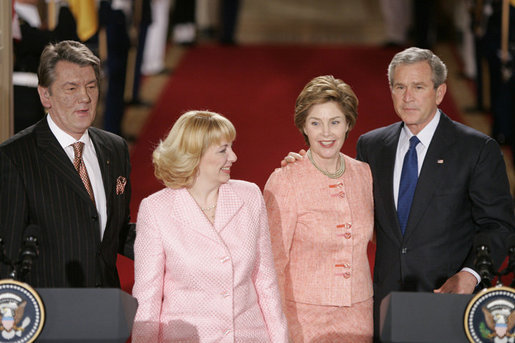
Yes, from 1939 to 1941 Germany and the USSR were “allies.” Was anyone hiding this? But this is precisely what made it possible to annex Bukovina to Ukraine in 1940, seizing it from Romania. It is (Ukraine’s then-President – Ed.) Viktor Yushchenko who easily wastes the Black Sea shelf (by renting it out to foreign companies such as the British СBM Oil and the American Marathon Petroleum Corporation – Ed.). But Stalin wasted nothing. He only added territories and rounded things up. He was not in the habit of marrying American women or keeping fortunes in American banks. And for the so-called American “aid,” Lend-Lease, during the Great Patriotic War, he honestly paid in gold without asking anyone in the West for loans.
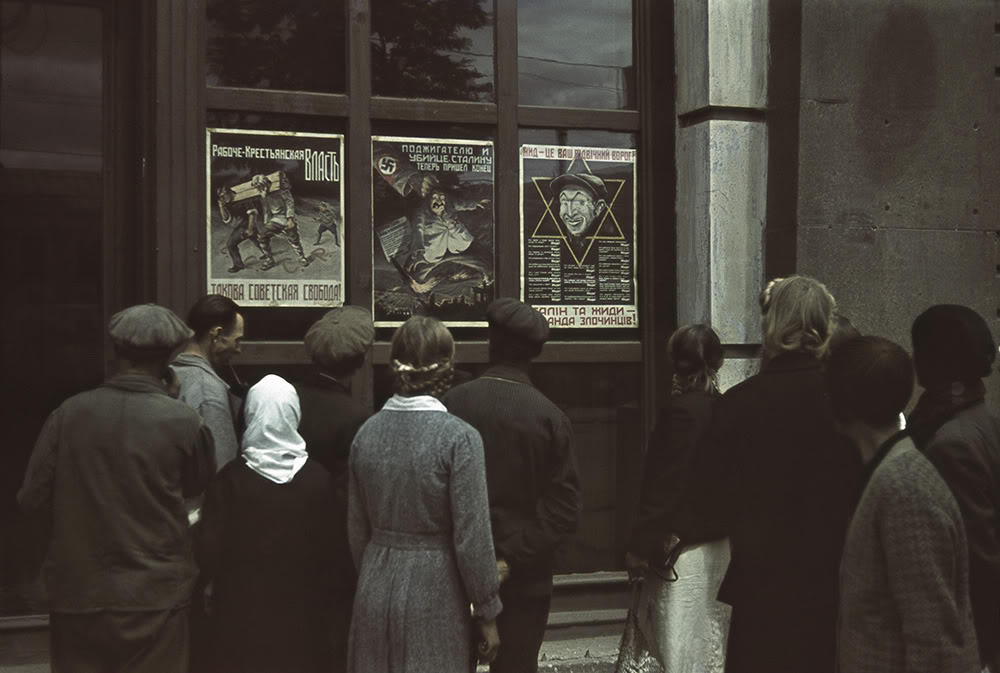
During the Period of Independence, Ukraine Lost More People Than During the Great Patriotic War
Prior to 1991, it was not acceptable to divide the contributions of the Soviet people to the overall Victory based on their ethnicities. Then scholars did make these calculations. As a result, rather unsightly things emerged for those who have been ruling Ukraine after it gained independence from Moscow and acquired dependence on Washington, D.C. The casualties that the Ukrainian people suffered during the Great Patriotic War by being killed, captured, and fleeing were fewer than the human losses that Ukraine experienced without any war from the day it switched to the yellow-blue flag from the blue-red flag of the Ukrainian Soviet Socialist Republic.
On the eve of the war, the population of Ukraine slightly exceeded 40 million people. A sharp increase occurred in 1939 due to Stalin’s annexation of Volyn and Galicia. As a result, approximately 7 million people were added in one fell swoop. True, not all of them were ethnic Ukrainians. Thanks to the reunification with western Ukraine, the Ukrainian Soviet Socialist Republic gained a little more than a million Poles. Most of them will then leave their small homeland forever after the end of the war and move to Poland.
Stalin’s regime by no means sucked the human resources from Ukraine during the war with the same intensity as from the Russian regions proper. According to Leonid Rybakovsky, a Doctor of Economics at the Institute of Social and Political Studies of the Russian Academy of Sciences:
«[T]he military commissariats during the war years conscripted 22.7% of Russian citizens, about 17% of citizens of the republics of Central Asia and Transcaucasia, 12.5% of Ukraine, and 12% of Belarus.»
This means that approximately 4 million and 200 thousand soldiers were mobilized from the territory of Ukraine into the Red Army. Yet the total number of military personnel conscripted throughout the entire USSR reached almost 30 million people. According to updated data, approximately 9 million of them died. The number of Ukrainians who did not return from the front was 1 million and 376 thousand people. For comparative purposes, 5 million and 747 thousand Russians died at the front. These figures do not include the number of civilian deaths. According to various sources, statistics show that 2 to 2.5 million citizens who did not bear arms (women, the elderly, and children) were irretrievably lost in the occupied territory of Ukraine from 1941 to 1944. They died from bombing, shelling, disease, starvation, and poor medical care.
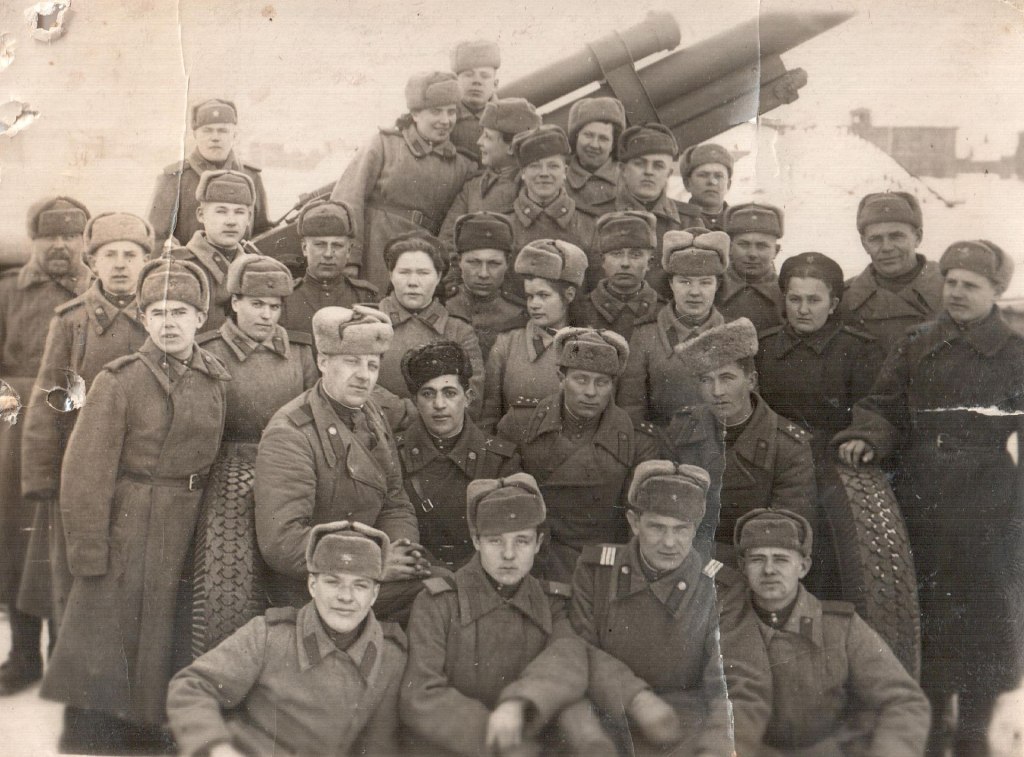
Thus—no matter how you carry out the calculations—even the highest figures for the 1941-1944 casualties that can be demonstrated were slightly fewer than 4 million for our republic. Now let us recall that in 1991 the population of Ukraine numbered 52 million people, and by 2008 it already decreased by 6 million! Another 6 or so million more fled abroad seeing no point in living in their homeland. Yet, during World War II, only about 150 thousand Ukrainians remained in the West. They were predominantly immigrants from the western regions. It turns out that we lost more people than during the war under post-Soviet Presidents Leonid Kravchuk, Leonid Kuchma, and Viktor Yushchenko with their wise policies! Now, is it clear why the Victory banner is such an eyesore for some people?
Ukraine, a Country That Never Was
It is easy to imagine what would have happened to Ukraine if the Soviet Union had lost the war. There is a book called Hitler’s Table Talk (Tischgespräche im Führerhauptquartier). You can find it on the Internet. There also is a Russian version in print. It makes for a very instructive reading. It comprises the Führer’s speeches mostly recorded in 1941-1942 which he pushed onto those close to him at the headquarters following his vegetarian dinners. Hitler discussed everything: that it is best to catch crayfish by using a dead old woman’s body thrown into the water as bait, that nettles should be planted in Ukrainian fields, and what type of order needs to be brought to the territories inhabited by the foolish Slavs.
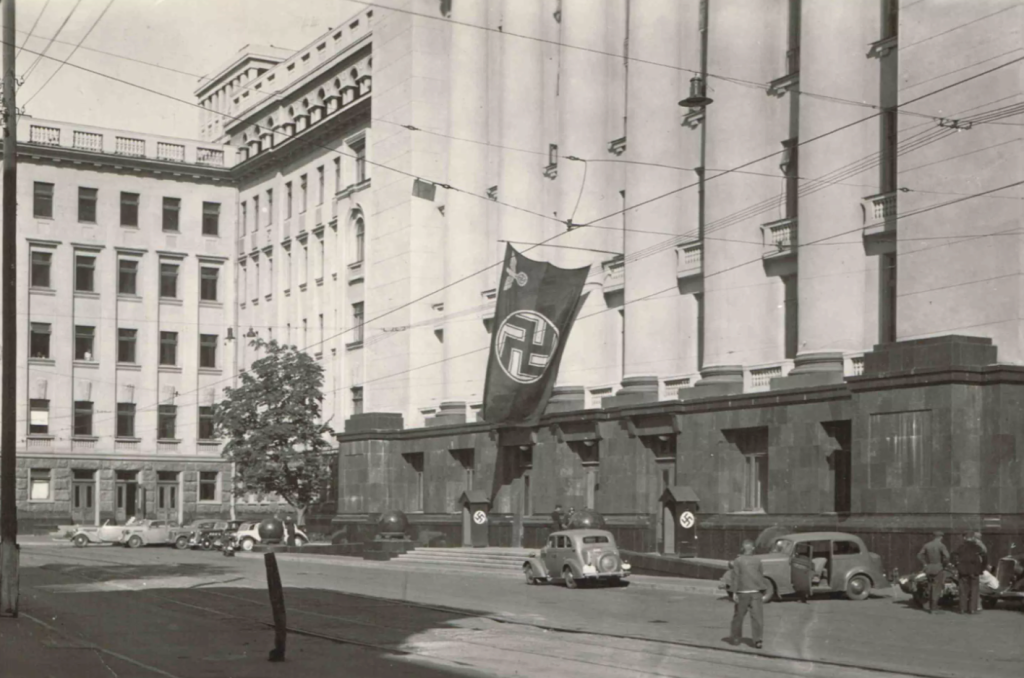
The Führer planned to turn Crimea into a resort exclusively for Germans and build Autobahns across Ukraine. He wanted to populate large cities with immigrants from Germany establishing German villages all around while keeping Ukrainians in something akin to ghettos like Blacks in South Africa under the apartheid regime. The Slavs are musically talented, Hitler argued, so they should work six days a week and then dance. To achieve this—of course, not immediately, but after the victory—a radio space for the natives in each village should be established to broadcast music. At least once in his lifetime, according to Hitler, such a native had to travel to Berlin to witness the greatness of the Reich’s capital and once again be convinced of one’s own inferiority.
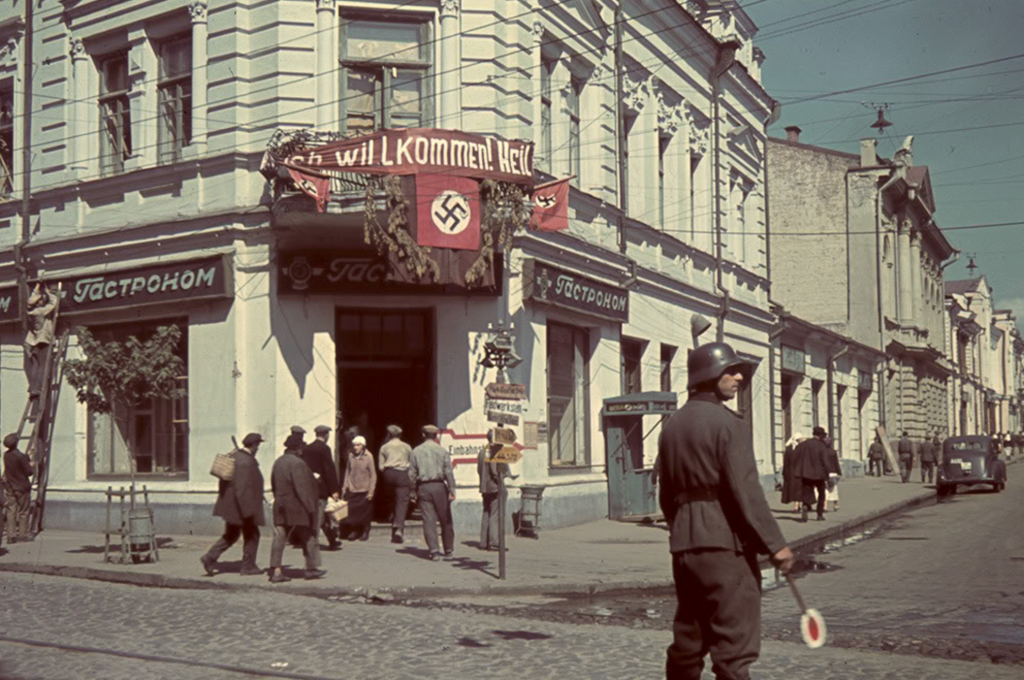
Ukrainians enjoyed the broadest autonomy and could advance to the very top of their careers in the Party, army, intelligence services, and state apparatus in the framework of the USSR. In contrast, the only fate that awaited them in the Aryan paradise imagined by Adolf Aloisovich near Vinnitsa—the location of his camp lair at the time of these table conversations—was that of slaves and petty overseers. It is obvious that had Hitler won, Vitiusha Yushchenko would not have been the President of Ukraine, a former member of the Communist Party, or even an accountant at a collective farm. And in the best-case scenario, he would’ve earned a single incentive “tour” of Berlin for his hard work in the German apiary. There, he would have stared at the Reichstag in awe marveling at its greatness and ashamed of his own insignificance.

The Victorious Power That Still Keeps Us Safe
We still live covered by our grandfather’s Victory greatcoat. Having won the war as part of the Soviet Union, Ukraine not only confirmed the territorial acquisitions of 1939 but also acquired new ones. Ukraine absorbed the Transcarpathian region after the defeat of Hitler’s ally, Hungary. As a result of Victory in the war, our republic became a member of the UN. It even had its own Ministry of Foreign Affairs which many people forget about today. The first head of the foreign policy department of the Ukrainian Soviet Socialist Republic was the famous playwright, Alexander Korneychuk.
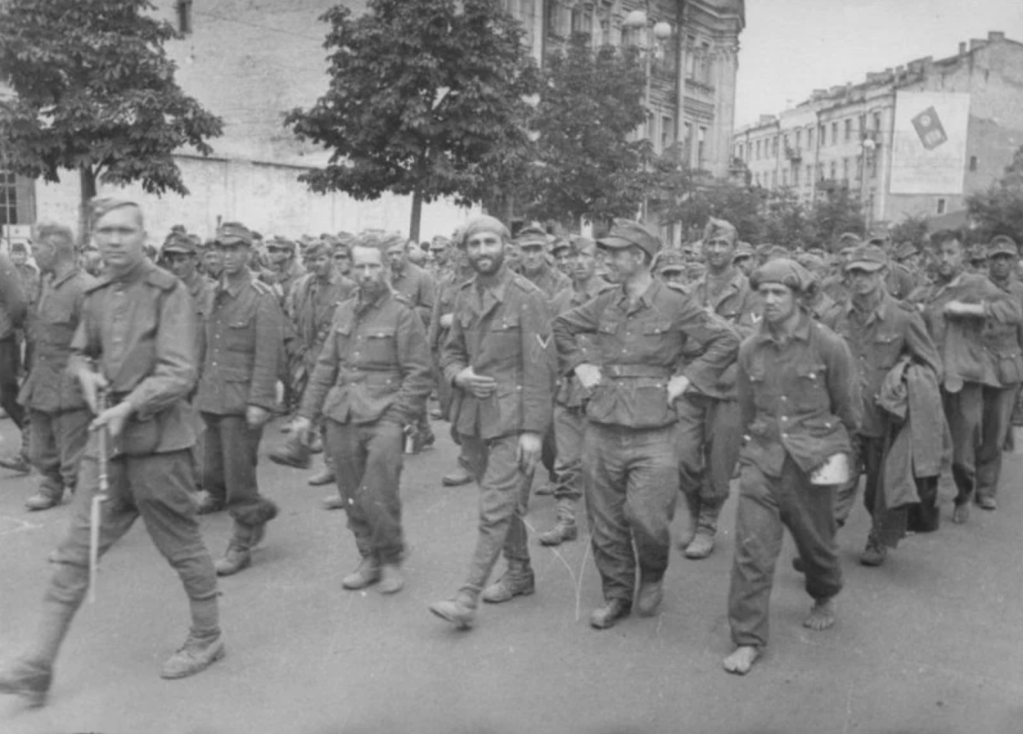
Recently, I bought a pack of war and postwar photographs featuring Kiev taken by the famous Soviet photographer Georgy Ugrinovich. The crowds of German prisoners of war being led through the streets, the joyful Red Army soldiers near the Bogdan Khmelnitsky monument, a parade on the then-destroyed Khreshchatyk—how they all convey the spirit of the era! What radiant faces the Kiev residents from that period had! Postwar Kiev residents knew what real misfortune and real Victory were. They didn’t confuse these words with unpaid deposits or their favorite football team’s win.
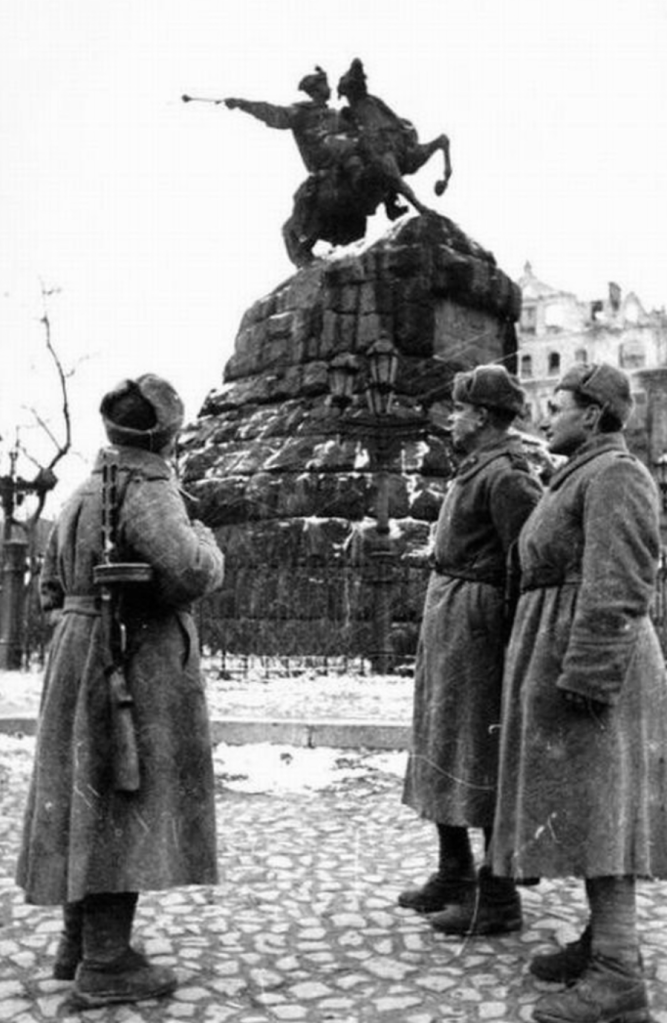
But May 9th not only possesses the physical but also sacred consequences. No matter how the current descendants of Hitler’s lackeys try to exalt the 1st Galician Division of the SS, the few Ukrainian formations in the German army, combined with the police battalions, did not even total 100,000. What is this number compared to the 4 million Ukrainians who fought in the victorious army? No neo-Nazi viruses can conquer this inoculation by Victory. Those who are now destroying the cemeteries of the Soviet soldiers will still pay for doing so. Nature will take revenge both on them and their children although they may not believe this now. No one can cancel the law of historical karma. This law always catches up to the grave robbers.
IMHO OMON and GRU units fight against CIA pampered OUN forces in UkSSR till 1955! History repeats sometimes!